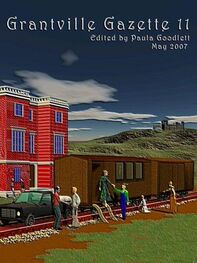The baton moved. The music began.
***
Giacomo Carissimi closed his eyes, the better to drink the music in. The Brandenburg -no, the Vasa Concerto No. 3 in G major by Johann Sebastian Bach. He and Andrea had nearly exploded with laughter when they had seen that listing in the program. The reasoning behind the renaming of the work was immediately obvious, but it was still a delicious thing to savor. This was a slap in the face of the Elector of Brandenburg, into whose employ Andrea had nearly gone. It was perhaps even the more savory because the Elector had yet to realize he had been slapped.
This concerto was one of the first up-time pieces that Giacomo had truly grown to love. Two driving allegro movements, linked by a bare two measures of an adagio movement. The last movement was absolutely one of the most joyous pieces of work that a string player could perform. The themes were passed from part to part as if it were a musical version of a child's keep-away game. Giacomo remembered reading that old Johann-which was how he affectionately thought of him-liked playing the viola. He could believe that, hearing this piece. The viola parts were just as intricate as the violin parts.
He abandoned himself to the music, immersed in it until the final chords.
***
Heinrich Schutz nodded slowly as the Vasa Concerto No. 3 concluded. Young Franz was indeed shaping to be what Master Giacomo had described him to be-a musician who played musicians. There was no doubt that the fifty or more musicians were gathered in his hands and played as if they were extensions of his fingers. To hear this-here and now-made up for the turmoil he had suffered weeks ago. This was the future. This was what music would look like from now on. Patrons and musicians alike would never settle for less after this. Historians of music would look back on this day and say, "Here. Here is where it changed." He marveled to be here, to be part of it in some way.
The program stated that the next work was by one Johann Pachelbel. Another name he did not know, so obviously one from the future. A Canon in D. Good, it would be a form he was somewhat familiar with, then. Perhaps from not so far in the future.
The baton was raised. Once more music sounded.
The canon started quietly, a slow statement of the theme in the cellos, and then began to build, phrase by phrase, theme by theme, section by section. It was light, it was airy, it floated. Heinrich floated with it. It almost seemed like musical lace, he thought. He admired Herr Pachelbel's delicate touch at writing the music. He also admired Franz's equally delicate touch at leading the performance of it.
The music built and swelled, ebbed and flowed. Finally, it began a slow diminuendo. The concluding phrase was a final quiet restatement of the first theme.
As the applause swelled around him, Heinrich nodded. Yes. This is the future and I will-I must-be a part of it. My name will be known for more than the music brought back with Grantville. God willing, I will make my place. And a far different one it will be than that of that sad man I read about in the encyclopedia article.
***
Andrea Abati, an old hand at reading programs-this was his second-glanced at it quickly to see what the third work was to be. Hmm, Adagio for Strings, by Samuel Barber. An Englishman, or more likely an American with an English name. This was not one of the men he had read about in his weeks in Grantville. Nor had he managed to hear this one in rehearsal since he returned to Magdeburg. Nonetheless, he trusted that Franz Sylwester had selected only superlative pieces for this concert. Certainly, the first two works had been excellent. Ah, Franz has raised his stick, or baton, as Master Giacomo called it. Andrea sat back in his seat, anticipating.
The beginning was very quiet, even more so than that of the canon. The sound seemed to seep into the room, a moving line over suspended chords. The theme was minor in intonation. It evoked a sadness in Andrea's heart, especially when it was joined by another line in a very free polyphony over the chords. He began to hear it as a mournful aria, perhaps as a mother crying for her children.
The music tore at him, shattering the walls he had built in his mind ever since he had read the future's judgment of him and his brethren. All the glory and the beauty of his art, of the music created by the gentilhuomi, treated with pity, sadness and more than a hint of condescension. He was used to men in Italy and Germany considering him unnatural, but that the future judged him so…
The orchestra sang, a song without words. Andrea poured his grief out into the music, letting the dark places in his soul flow, the grief in his heart matched by the sorrow of the music. How… how did this… American, this… up-timer-how could he know of Andrea's sorrow? How could he write this, this passion for Andrea Abati and his brothers, when he never knew them?
The cellos picked up the theme and carried it, sounding darkly, then restated it, climbing, climbing, joined by the other strings, sounding now as a choir of angels mourning. Andrea listened, heart swelling, as the music crescendoed, circling, climbing, carrying him along, building, building, building, building, one peak after another, until it finally crested. His mouth opened in a silent scream, every muscle in his body clenched, every tendon rigid.
The music stopped.
Slowly, slowly, it began again. In his mind's eye he could see the mother laying her child down. So, as the orchestra sang the final lament, he, too, laid down the grief he had not even realized he was carrying.
When the final note was released, Andrea opened his eyes, unsurprised that they were teary, unsurprised that his cheeks were wet; unsurprised that he was shaking a little.
Master Carissimi leaned over. With concern in his voice, he asked, " State bene? "
Andrea took a moment to respond. " Si. I am all right." And as he smiled at the master, he realized that he was.
***
Franz turned, stepped off of the podium and bowed to acknowledge the applause. He then walked out of the room to allow for the small intermission that was planned in the program.
He leaned back against the wall in the hallway and wiped the damp hair out of his face… or at least, he attempted to. Realizing that he still held the baton in his hand, he tucked it back into his left sleeve, then completed the action with his hair.
"Franz!" Marla hurried to him. She arrived with a thump, threw her arms around him and gave him a ferocious hug and a kiss that left him dazzled. She stepped back at arm's length. "It's going great, Franz! It sounds wonderful, the guys are playing wonderful, and you're doing wonderful!" She hugged him again.
"But the hardest part is yet to do."
"Bah! What's left may be longer, but I think the hardest one was the Barber, and you did fine with it."
Franz contemplated her words, and a sense of warmth began to build. She was right, he thought. The Geminiani/Carissimi piece was relatively simple, and the Vaughan Williams, although longer, was no more complex than the Barber. A new feeling of confidence settled on him.
***
Thankful that the third work was completed, Girolamo Zenti picked up his program. He stared at it without seeing it for a moment, settling his mind. The Adagio had been a little disturbing; dissonant, even harsh at times, yet it had in some way moved him. A sudden chill chased through him; he shuddered.
Focusing on the program, he saw that the next work was the piece that his friend Master Giacomo had contributed to the program, Variations and Etude on Geminiani's Concerto Grosso in E minor. Although not a musician himself, Girolamo perforce had to know something about music in order to be the master craftsman that he was. He found his friend's work interesting. He had taken a work originally written for a group of solo instruments and harpsichord and had re-voiced it for full orchestra.
Читать дальше






